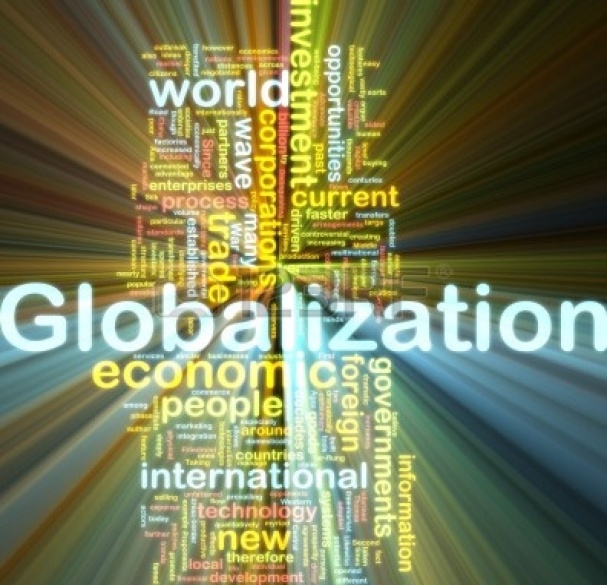
- •International Economics & Global Business Today
- •Adjectives & Adverbs:
- •15.2. Read and translate the text into Ukrainian: What Globalization Is?
- •15.3. Language Practice:
- •15.3.1. Multiple Choice:
- •15.3.2. Key Terms – Matching:
- •15.3.3. Please explain the meaning of the following words and word combinations in English:
- •15.3.4. Please complete the following text with the basic economic concepts using the following words and phrases. Use the term once. Translate the text into Ukrainian:
- •The global economy of the 21st century
- •15.4. Translation Practice:
- •15.4.1. Please give the English variants of the following Ukrainian words and word-combinations:
- •15.4.2. Please translate the following sentences into Ukrainian:
- •15.4.3. Please translate the following sentences into English:
- •15.4.4. Please make an English summary of the following text: міжнародні валютно-фінансові відносини
- •15.5. Reading Practice:
- •15.5.1. Please read the following texts and translate them into Ukrainian:
- •15.6. Internet Practice:
- •15.6.1. Web Activities:
- •15.7. Critical Thinking & Discussion Questions:
International Economics & Global Business Today
A fundamental shift is occurring in the world economy. We are moving
away from a world in which national economies were relatively
self-contained entities, isolated from each other by barriers to
cross-border trade and investment; by distance, time zones, and
language; and by national differences in government regulation,
culture, and business systems. And we are moving toward a world in
which barriers to cross-border trade and investment are tumbling;
perceived distance is shrinking due to advances in
transportation and telecommunications technology; material culture is
starting to look similar the world over; and national economies are
merging into an interdependent global economic system. The process by
which this is occurring is commonly referred to as globalization.
fundamental shift is occurring in the world economy. We are moving
away from a world in which national economies were relatively
self-contained entities, isolated from each other by barriers to
cross-border trade and investment; by distance, time zones, and
language; and by national differences in government regulation,
culture, and business systems. And we are moving toward a world in
which barriers to cross-border trade and investment are tumbling;
perceived distance is shrinking due to advances in
transportation and telecommunications technology; material culture is
starting to look similar the world over; and national economies are
merging into an interdependent global economic system. The process by
which this is occurring is commonly referred to as globalization.
In this interdependent global economy, for example, an American might drive to work in a car designed in Germany that was assembled in Mexico by DaimlerChrysler (Daimler AG)1 from components made in the United States and Japan that were fabricated from Korean steel and Malaysian rubber. He/She may have filled the car with gasoline at a service station owned by a British multinational company that changed its name from British Petroleum to BP to hide its national origins. The gasoline could have been made from oil pumped out of a well off the coast of Africa by a French oil company that transported it to the United States in a ship owned by a Greek shipping line etc.
This is the world we live in. It is a world where the volume of goods, services, and investment crossing national borders expanded faster than world output every year during the first decade of the 21st century. It is a world where more than $1.2 billion in foreign exchange transactions are made every day. It is a world in which international institutions such as the World Trade Organization and gatherings of leaders from the world’s most powerful economies have called for even lower barriers to cross-border trade and investment. It is a world where the symbols of material and popular culture are increasingly global. It is a world in which products are made from inputs that come from all over the world. It is a world in which an economic crisis in Asia can cause a recession in the United States. It is also a world in which a vigorous and vocal minority is protesting against globalization, which they blame for a list of ills, from unemployment in developed nations to environmental degradation and the Americanization of popular culture.
For businesses, this is in many ways the best of times. Globalization has increased the opportunities for a firm to expand its revenues by selling around the world and reduce its costs by producing in nations where key inputs are cheap. Since the collapse of communism at the end of the 1980s, the pendulum of public policy in nation after nation has swung toward the free market end of the economic spectrum. Regulatory and administrative barriers to doing business in foreign nations have come down, while those nations have often transformed their economies, privatizing state-owned enterprises, deregulating markets, increasing competition, and welcoming investment by foreign businesses. This has allowed businesses both large and small, from both advanced nations and developing nations, to expand internationally.
Module Objectives
|
Module 4: Units 15-19
Unit 15 What Globalization Is?>
“Globalization is not something we can hold off
or turn off . . . it is the economic equivalent
of a force of nature – like wind or water”
Bill Clinton2
15.1. While analysing the Unit and reading the Text please pay attention to the following words and word-combinations (only to their meanings in the field of Economics) and write down their Ukrainian equivalents:
Nouns:
benefit congestion costs deregulation dispersal/dispersion diversity eurobond(s) facilitator financial asset(s) financial future(s) globalization: ~ of market(s)
|
~ of production homogeneity impediment input interest rate legal entity legal regulation loan merger outsourcing prevalence rationale
|
recession revenue rivalry scope sister institution slowdown successor supplier treasury bill(s) treaty turmoil yield |
Verbs:
to accomplish to adhere to blame to converge to decline |
to engage to enshrine to eradicate to exemplify to foster |
to reduce to shrink to transcend to tumble to usurp |
